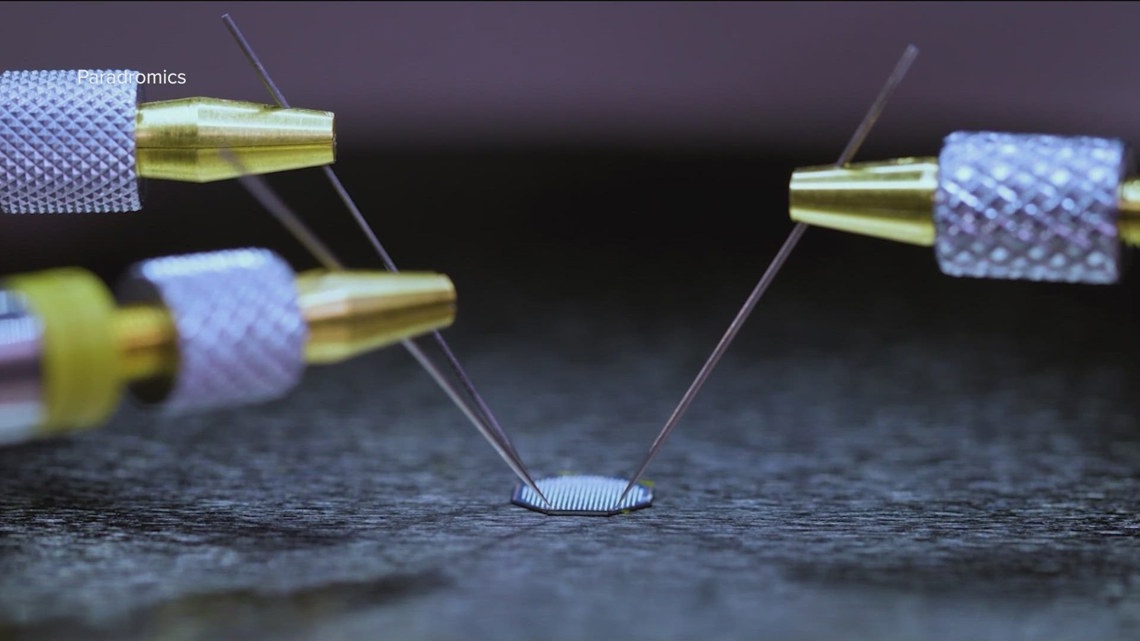
An Austin-based neurotechnology company is working on a device that could help stroke or ALS patients restore their ability to communicate.
AUSTIN, Texas — Imagine losing the ability to speak – whether it is from a stroke, ALS or a spinal cord injury – but you can still think about what you want to say.
Matt Angle is the founder and CEO of Paradromics, an Austin-based neurotechnology company. He said he understands the frustration.
“The kinds of things that would affect me the most in my own family life. One of the things that’s most important is being able to talk to my kids,” Angle said. “They stop being able to form those kinds of bonds and communicate on the emotional things and the things that are really important. And so, you know, their relationships suffer.”
To help patients restore their ability to communicate, Paradromics developed an implant that can read brain signals and translate them into commands.
Dr. Stephen Ryu is a neurosurgeon and the Chief Medical Officer at Paradromics. In May, the company teamed up with its clinical partners at the University of Michigan.
“For the first time, in a live human surgery, we took our entire system and we implanted it just for about 20 minutes,” Ryu said.
Now, Dr. Ryu says the team is focused on moving quickly and safely to help more people.
“Taking that to the masses, creating a commercial device that we can actually implant into humans that doctors anywhere in the world can prescribe to help patients,” Ryu said. “That’s a whole other scientific challenge.”
As the company works through its next steps of testing, Ryu’s and Angle’s hopes are to tackle the challenge head-on and transform the lives of possibly millions of people.
“A lot of people that are waiting for cures,” Angle said. “In the meantime, technologies like this can offer a pathway to therapy and offer people their … lives back.”
Paradromics is now hoping to get its trial approved by the Food and Drug Administration (FDA) by the end of 2025 and enroll its first patients by early 2026.
